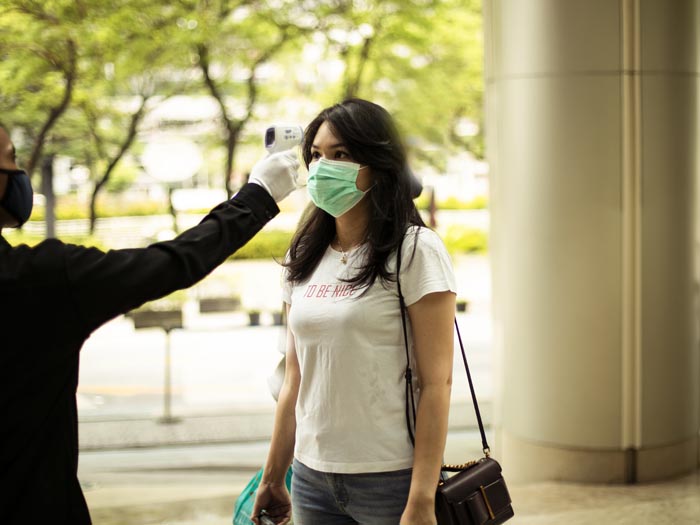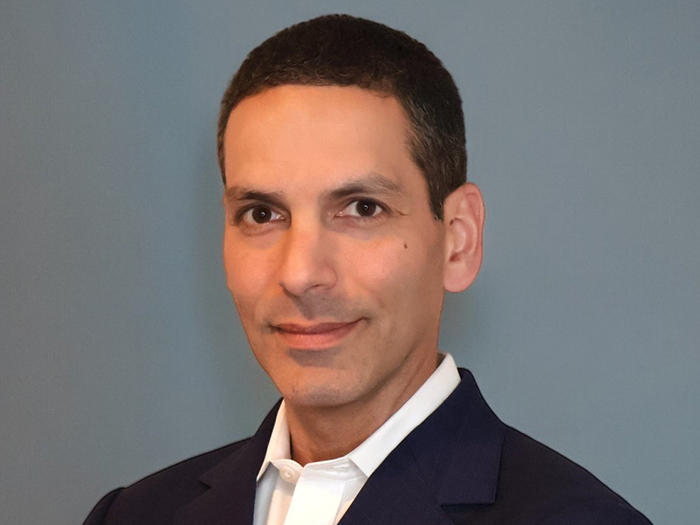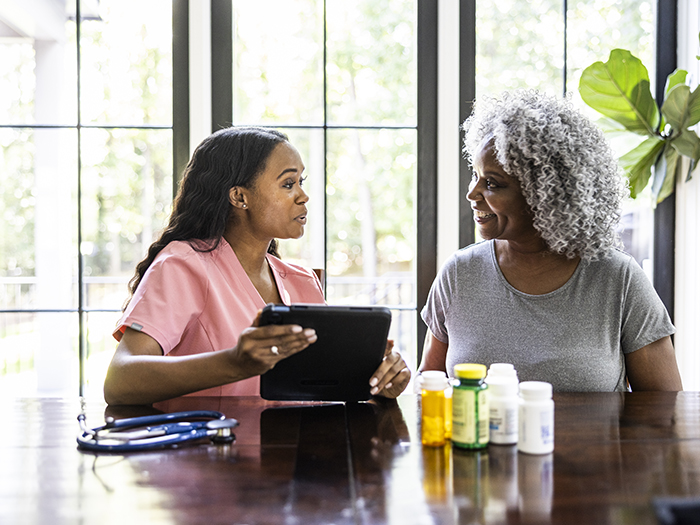Continuous Temperature Monitoring Could Help Detect COVID-19 Early. Will Workers Embrace It?

Coming into work? Sitting down to eat at a restaurant? Get ready for the temperature check.
Since the COVID-19 pandemic began, random temperature checks are being used to screen people for the virus. A fever is one of the early signs of the virus, and consequently, people have become accustomed to having their temperatures scanned in an effort to stop the spread of the virus.
The way employers and businesses are screening people’s temperatures may not be the most effective method, however.
A study from the University of California, San Francisco and the University of California, San Diego found that constant temperature monitoring can detect and predict fevers — one of COVID-19’s telltale symptoms — better than random checks, Fast Company reports.
The Study at a Glance
To conduct the study, researchers provided an Oura ring, a sleep-tracker famously endorsed by Twitter CEO Jack Dorsey, to 3,400 health care workers across the U.S. From those workers, researchers identified 50 who were affected with COVID-19 to conduct a small feasibility study.
The feasibility study found that tracing a person’s unique temperature fluctuations was a more reliable indicator of health than whether or not someone has a temperature of 100.4 or higher.
Thirty-eight of the 50 participants reported the tracker was able to detect a fever when participants reported no other symptoms.
The study looked at their biometric data, including temperature, heart and respiratory rates, and wakefulness, from the weeks prior to their infection and after.
As this was a feasibility study, the conclusions can’t be applied to the population at large. Still, researchers found the results promising.
A Deeper Dive into the Findings
One reason constant temperature monitoring could be a more accurate predictor of COVID-19 infection than randomized temperature checks is that everyone’s baseline temperature is different.
Randomized checks are looking to detect a fever of 100.4 or higher, but people with lower-baseline temperatures may exhibit a fever at lower levels.
Temperature wasn’t the only predictor of illness that researchers tracked in the study, but increased heart rate, reduced heart rate variability and increased respiration rate did not correlate as strongly with infection.
Researchers have worked with Oura to invite existing users of the ring to participate in the study and have concluded a study of more than 65,000 participants across the globe to try to produce findings that can be applied to the general population.
They hope to use the results of that study to build an algorithm that uses the biometric data collected by Oura rings to detect when a person is becoming sick. Researchers can then have participants take a COVID-19 test to see if they were able to accurately predict infections.
They plan to conduct another study of 4,000 people to evaluate the algorithm.
Will Workers Embrace It?
Even if the results of subsequent studies prove promising, employers and public health officials would face numerous hurdles implementing a system in which people constantly wear temperature monitoring devices.
Currently, the U.S. does not have the public health infrastructure to implement a constant temperature monitoring program, Fast Company noted.
Individual employers could try to implement a wearable temperature monitoring program to help fight the spread of COVID-19 in their offices, but employees may push back.
Collecting biometric data is already risky for users and some employees may consider it an invasion of their privacy.
A hack that exposes biometric data feels much more personal to workers. In these cases, it’s not some random password or email address that could be exposed; it’s information from people’s bodies.
Employers looking to implement wearable programs will need to contend with these risks, whether their programs are designed to detect COVID-19 or just to improve safety in general. &










